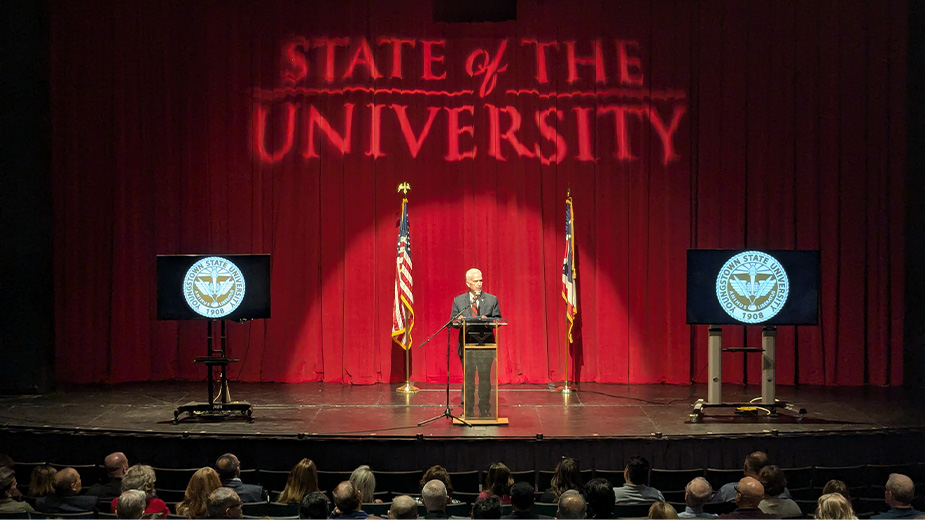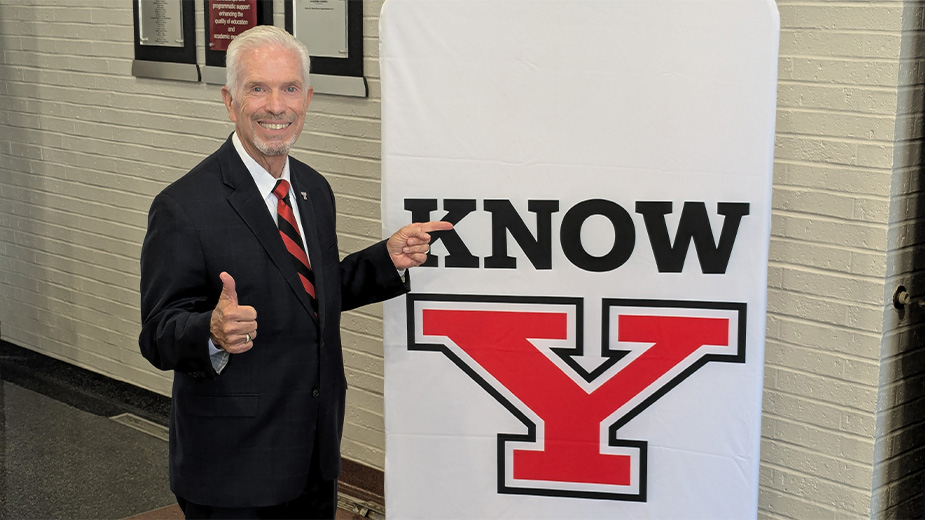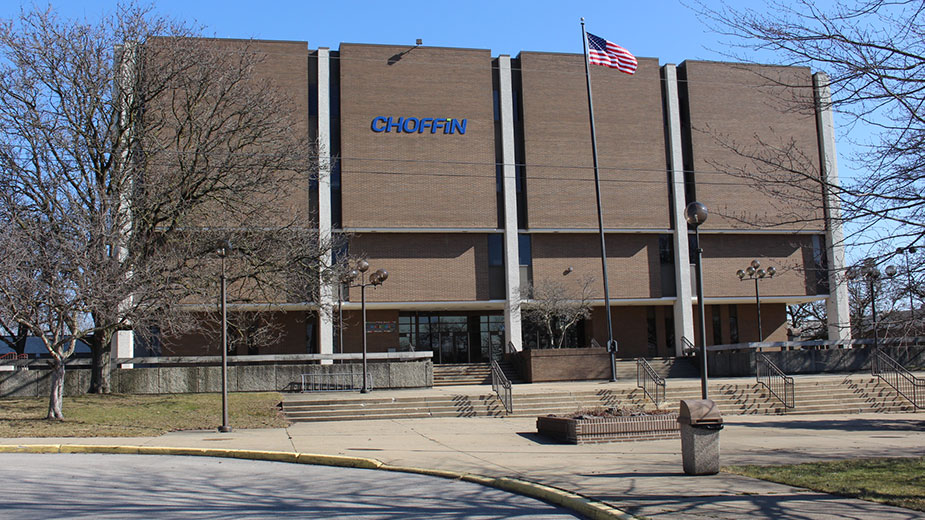YSU President Highlights Successes, Lays Out Goals
YOUNGSTOWN, Ohio – Youngstown State University enrollment is up and finances are stable, YSU President Bill Johnson told faculty, staff and administrators Tuesday morning in his first State of the University address.
“Youngstown State University is in a really good place,” said Johnson, who became YSU’s 10th president in January.
During his address inside the Ford Theater at Bliss Hall on campus, Johnson laid out his goals, which include boosting enrollment, improving student experience and integrating YSU in the business community.
While enrollment is up about 6% compared with this time last year, Johnson said it’s too early to call it a trend.
“In this world of intense competition for students, up is definitely the right direction,” he said.
And the university’s academic offerings are growing. Johnson pointed to Provost Jennifer Pintar working with faculty to establish more than 60 new associate and certificate programs to serve students from Eastern Gateway Community College as that college prepares to dissolve in October. Eastern Gateway is the first public college in Ohio to dissolve.
Still, YSU faces challenges, and it’s going to take people working together to overcome them, the YSU president said.
“My first goal is that YSU becomes the – not an, the – anchor university in northeast Ohio,” he said. “I want us to lead, not follow.”
That means understanding that the university is in the people business, Johnson said.
“It’s our job to provide the students that choose YSU with a robust repertoire of educational choices that will enable them to pursue the American dream on their own terms,” he said.
Pintar is working with the university academic senate, faculty and staff to develop an academic master plan. If YSU were a manufacturing company, for example, the product it makes would be the education it provides, and the provost would be the plant manager.
The provost must understand the customers: the students and businesses that need employees. All other offices of the university, including the president’s, support that work, Johnson said.
Improving student experience is another of Johnson’s goals, whether that’s first-time, returning or career-changing students.
At the end of the day, it doesn’t matter what led them to YSU, Johnson said.
“What matters is that they trusted us to give them the tools that they need to meet the challenges of their generation,” he said.
That’s why the renovation of the Kilcawley Center is so important, he said. Funds are being raised for that $44 million project.
The work involves modernizing the 163,000-square-foot building, which houses eateries, offices and meeting, event and gathering spaces. Kilcawley was built in 1964, with additions in 1971 and 1979.
It’s home away from home for YSU students, as well as faculty, staff and members of the business community who visit campus and meet with students, Johnson said.

Another focus for Johnson is improving student advising. He said that’s not a criticism. The problem lies with the process, not with the people involved in advising.
But the faculty and staff experience is important, too, Johnson said.
One way he’s working to improve that is the creation of an innovation and investment fund “to provide the opportunity for interdisciplinary collaboration to explore, assess or implement innovative strategies associated with two areas.”
Those areas are teaching and learning with a connection to artificial intelligence, and student recruiting connected to matriculation, persistence, degree completion or career success. Funds for selected projects will span an academic year and must include key performance indicators.
Johnson also listed increasing enrollment as one of his goals. Challenges to that include increased competition from other colleges and universities, population decline and a false narrative prevalent in society that questions the value of higher education.
“Some are saying it’s not needed at all, and others are saying it costs too much,” he said.
But those with a college degree earn significantly more than those without, pointing to a return on investment. YSU must help prospective students see the value of coming to YSU, he said.
To increase enrollment, YSU has to look for students where they are. And the university must tailor programs to what business and industry wants and needs, he said.
“We must be nimble, flexible, adaptable and agile because workforce needs in this ever-changing and technologically advancing global economy are like shifting sands under our feet,” Johnson said. “They’re changing. They’re changing rapidly and frequently, and that’s not going to go away.”
That remains a work in progress, but YSU is expanding program offerings.
Some courses will be offered online this fall as a way to serve former Eastern Gateway students too. Johnson stressed, however, that YSU isn’t becoming an online university. Offering courses online, as many other colleges and universities do, keeps YSU competitive.
“And soon the great big red Y will be going up in Steubenville as we begin teaching there as well,” he said.
YSU is also starting what Johnson called an enterprise enrollment initiative that involves all facets of the university. It has partnered with a consulting group to “create a structure of adaptability tools to enable us to adjust to the evolving needs of a diverse student body” and shifting landscape of higher education, he said.
The university also developed a strategic communication function to tell the YSU story and keep alumni informed.
Another of Johnson’s goals is to integrate YSU with the business community. By better understanding the workforce needs, the university can better produce the workers needed, he said.
That’s a goal that’s constantly evolving.
Another goal is to create an Office of Government Affairs, led by Sarah Keeler, to ensure YSU has a voice at the table in funding and policy discussions at the state and federal level.
Regarding finances, Johnson said it’s important that YSU operates like a business as well as a university.
“Our shareholders demand that we’re somewhat self-sustaining,” he said.
Stakeholders include the state and federal government, as well as students and parents, he said. While one-third of YSU’s revenue comes from state funding, two-thirds comes from tuition.
“That’s another reminder of the importance of enrollment,” Johnson said.
Pictured at top: YSU President Bill Johnson stands next to a Know Y sign Tuesday after delivering his first State of the University address.
Copyright 2024 The Business Journal, Youngstown, Ohio.



